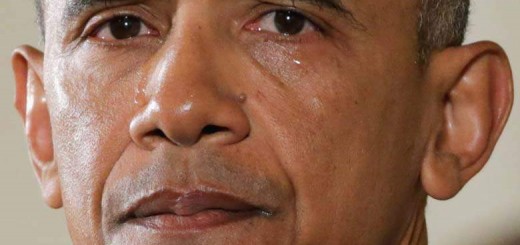Free Spirit

The sight was not only amusing, it was timely. Leaving my house for the synagogue early the third morning of Passover, a Sabbath this year, I wished my next-door neighbor a good morning. A muscular man, he was sitting in his doorway in his pajamas, curled up against the mist and chill, smoking a cigarette.
His wife (or maybe his landlord) doesn’t allow him to smoke in the house. And so he can often be found outside feeding his habit. This particular day, though, his just-woke-up-and-needed-one-so-bad look took on a larger import. It was a poignant reminder of what Jews were celebrating that week: release from slavery.
I imagined my neighbor regarding his perch as an escape from the oppression of the smoke-intolerant house. The reality, of course, is quite the opposite: his enslaver is his addiction.
The freedom for which Jews recently spent a week thanking their Liberator is also often misunderstood. Yes, the Jewish exodus from Egypt freed our ancestors from physical enslavement, but it was much more than a liberation movement, a shaking off of shackles and assertion of independence. The deepest enslavement the Jews suffered in Egypt, authentic Jewish sources explain, was spiritual in nature. The people had sunk to a deep level of defilement, having assimilated their masters’ unholy practices. And G-d’s intercession before the people could sink even any deeper into the moral morass – another moment in Egypt, the rabbis of the Midrash teach, would have rendered them beyond redemption – is the deepest reason for our Passover rejoicing.
Which made a statement issued by the advocacy arm of the Reform movement on the eve of the holiday so tragically ironic. It came in the wake of the Vermont legislature’s vote to legalize same-sex marriage in that state, and expressed how, “as we prepare for the Passover holiday,” the movement was “cheered by the sweetness of [the] victory for marriage equity…”
To some of us, the Vermont vote, like an Iowa court ruling shortly before it that yielded a similar outcome in that state, would have been more appropriately associated with the Seder plate’s bitter herbs. For the headlong societal rush to exalt behavior the Torah forbids not only to Jews but to all of humanity evidences a deep and dangerous misunderstanding. It confuses libertinism with liberty, free-for-all with freedom.
For true freedom entails responsibility; it is the freedom not of the body but of the soul. When G-d ordered Pharaoh “Let My people go!” He continued: “… so that they may serve Me.”
The Jewish concept of freedom does not entail being unfettered, but rather bound to what is meaningful; it does not mean independence but subservience – not to the mundane but to the Divine.
Which is why Passover, in a sense, doesn’t entirely end after its seven (or, outside of the Holy Land, eight) days. On the second day of the holiday, following the Biblical command, observant Jews begin counting, marking each of the following forty-nine days by pronouncing a blessing and assigning the day a number. The fiftieth day, the day after the counting is completed, is the holiday of Shavuot (“Weeks”); it is in a very real sense the culmination of Passover.
For according to Jewish tradition, Shavuot is the anniversary of what the exodus from Egypt was for: the revelation at Sinai, when the Torah was given to the Jewish people. And therein lies the ultimate meaning of Jewish freedom: emergence from our enslavement to lower urges, to substances, possessions, the dictates of society. Freedom of the spirit.
And so we count the days – quite literally – from the holiday of freedom to the holiday of Torah, expressing (and, hopefully, impressing on ourselves) just how inextricably the theme of Passover is linked to that of Shavuot, how the ultimate expression of true freedom is having the courage and mettle to throw off the yoke of temporal masters and commit ourselves to what is meaningful in an ultimate sense: the will and law of G-d.
The rabbis of the Talmud put it pithily, noting how similar the Hebrew word for “etched,” “charut” – used about the commandments carved on the Tablets of the Law – is to the Hebrew word for freedom, cherut.
“The only free person,” they explain, “is the one immersed in Torah.”
© 2009 AM ECHAD RESOURCES
[Rabbi Shafran is director of public affairs for Agudath Israel of America.]
All Am Echad Resources essays are offered for publication or sharing without charge,
provided the above copyright notice is appended.



Rabbi Shafran
“The only free person,” they explain, “is the one immersed in Torah.”
That’s because he makes his wife clean the house for Pesach, whlle he sits and learns.
The joke is half serious. The word person as used above refers exlusively to a male.
How are women free according to authentic Jewish sources?
Maybe this is what the patriarchy wants us to think, but I was taught that the full saying was, “The only free person is one engaged in Torah and mitzvos.”
Jewish women are obligated to study Torah laws that apply to them.
The Vilna Gaon wanted Jewish girls to study Mishlei (Proverbs).
The Contrarian, I think that Rabbi Shafran’s use to “Torah” is more expansive than that. It includes practicing the Mitzvot, as learning them.
I think Rabbi Shafran makes it clear that the freedom he’s referring to is obeying G-d and observing the Torah’s laws, not studying Torah.
But I’m not sure that is what the saying he quotes is really referring to. “Osek batorah” is usually understood as studying Torah, I think.
Still, the rabbi’s point is true. Living according to the Torah is what Jewish freedom is meant to be. And that’s something very different from what the word freedom means to most people these days.